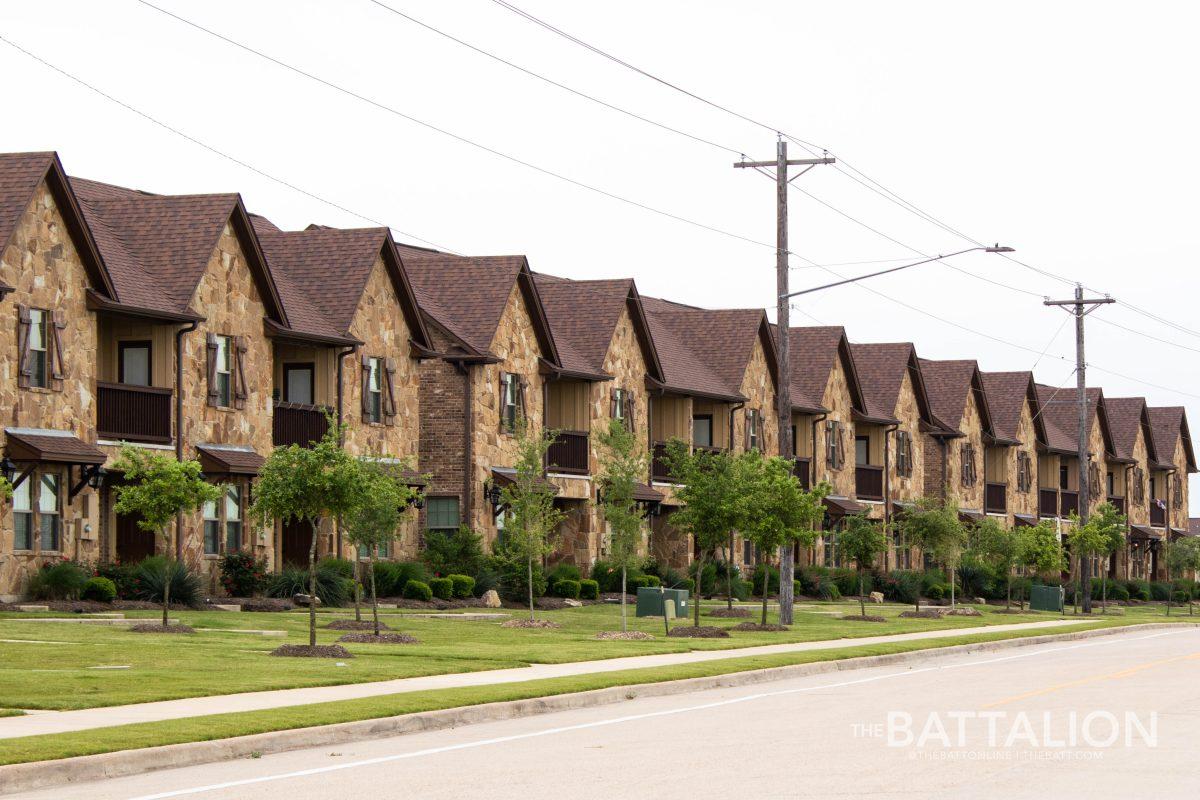The College Station City Council continues to consider adopting the Restricted Occupancy Overlay, or ROO, for neighborhoods in the area after holding several meetings and surveying members of the community.
According to the city of College Station’s website, the ROO was introduced to the city when neighborhoods came forward in the summer of 2020 with concerns that houses were becoming overpopulated due to many Texas A&M students living together. If the ROO is adopted in College Station, single-family neighborhoods will be able to limit the number of unrelated individuals who can live in a home together to only two individuals.
Political science professor Anthony Ives said he has seen this type of zoning restriction before in other cities such as Lexington, Va., where he attended college. Ives said this is a common type of zoning seen throughout the United States.
“The town that I went to college in was a very small town, much smaller than College Station, and they actually had a somewhat similar restriction there even though it is a very small town,” Ives said. “Each city in the United States has the zoning power. Zoning allows cities to decide more or less how you get to use your property.”
This is an example of nimbyism, Ives said, because college students are important to the community but people in the community may not want students living next door. He said this would affect the distribution of where students are living compared to the rest of the community.
“It would be a constriction on your options of where to live,” Ives said. “I think college students, probably like most other people, want as many options for living arrangements as they possibly can, and this living restriction would take that away from some students in town.”
Landscape architecture and urban planning professor Van Zandt said if this ROO is passed, it will significantly reduce the amount of affordable housing for students.
“A lot of the students that do choose to live in the single-family neighborhoods are sometimes the lower income students that cannot afford the high amenity apartment complexes that are so prominent in College Station,” Zandt said.
In addition to low-income students, Zandt said the ROO can also affect lower income families that may have to double up with others to afford housing.
“It demonstrates the lack of affordable housing that is already a problem in College Station and is just getting worse,” Zandt said.
Ives said though college students may not live in College Station permanently, students should consider engaging in local politics during their time at A&M because their political activism is important not only for themselves but also future Aggies.
“Even though you will move on out of here within three to five years as a student, the university always needs representation,” Ives said. “If the number of students participating in city council events or city council elections is low then the students’ interests [long-term] will not be represented as this permanent interest that happens.”
Zandt said an issue like this is where students can step in and have their voice heard by city officials as well as a chance to interact with their local governments.
“I would remind students that they are also residents of College Station and they have the same right to have their voice heard as anyone else,” Zandt said. “I think that they should feel free and encouraged to reach out to their city officials to let them know what they think about the potential for this ordinance to pass.”
A&M professors explain what ROO means for College Station
March 22, 2021
Photo by Photo by Josh Sozio
Texas A&M professors discuss the possible implications of a Restricted Occupancy Overlay and what it could mean for College Station students and residents.
0
Donate to The Battalion
$2065
$5000
Contributed
Our Goal
Your donation will support the student journalists of Texas A&M University - College Station. Your contribution will allow us to purchase equipment and cover our annual website hosting costs, in addition to paying freelance staffers for their work, travel costs for coverage and more!
More to Discover










